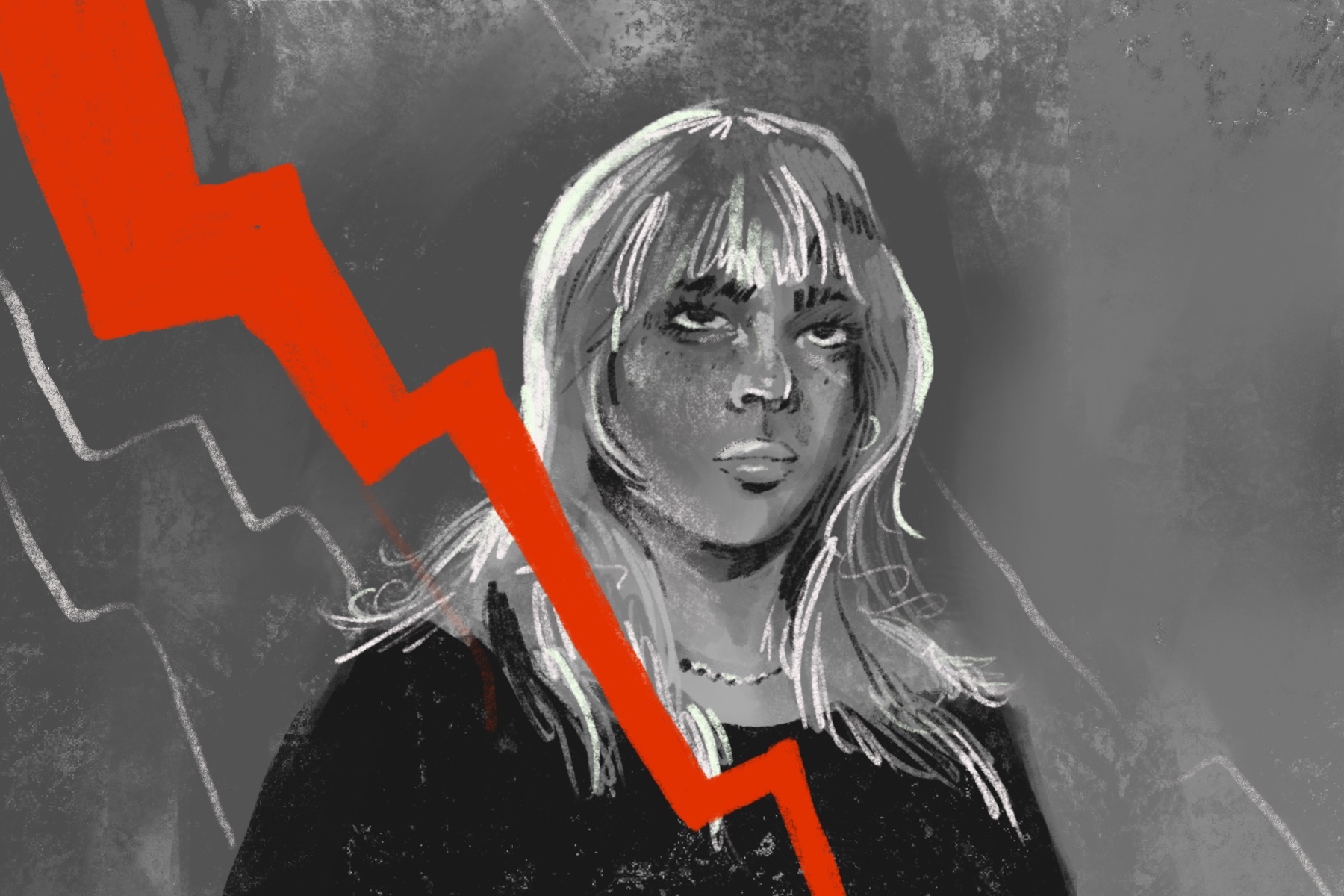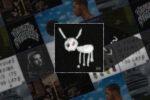Something’s in the air: Excitement over the release of Billie Eilish’s sophomore album, “Happier Than Ever.”
In preparation for her latest album, Eilish’s social media had been flooded with photoshoot stills and live performances of “Happier Than Ever” tracks, giving enthusiastic fans a preview of what was to come. The 16-track successor to Eilish’s Grammy award-winning “When We All Fall Asleep, Where Do We Go?” had already earned prominence ahead of its release — according to Apple Music, over 1 million listeners had already pre-added “Happier Than Ever,” which makes it the most pre-added album in Apple Music history.
Eilish also provided some context on its creation in a recent interview with Vevo, describing her album as a timeless record. “I gathered a lot of inspiration from older artists that I grew up loving, mostly Julie London, Frank Sinatra and Peggy Lee,” said Eilish. “The process was very natural and satisfying, whereas before, I always felt under pressure and anxious. I feel much more confident in my craft now.”
Eilish hopes that the versatile yet cohesive album will evoke new emotions in its listeners. “I don’t want to put ideas into their brains because I want them to feel that their own interpretation is the right interpretation.”
Even as fans avidly awaited the release of “Happier Than Ever,” they can also look forward to a special concert film coming Sept. 3. In the official teaser trailer for “Happier Than Ever: A Love Letter to Los Angeles,” Disney+ announced that for the first time, Eilish will perform every track of the album in order. Filmed at the Hollywood Bowl, Eilish described this experience as the “most surreal shoot ever.”
Despite the positive buildup for the new record, critics claim that Eilish is in her “flop era,” a period during which an artist produces subpar work. The Grammy-winner clapped back at detractors in a TikTok video with over 53 million views: “Eat my dust.”
Regardless, negative opinions filled the comment section — statements such as “At least you’re aware hun,” “Did we lie tho?” and “I was gonna agree.”
Dismissive reactions to “Happier Than Ever” have nonetheless failed to thwart Eilish’s confidence for the album’s success. To refer to the album as her “flop era” is nothing but a rash interpretation of the singer’s hard work, and her latest album will certainly prove her ability to remain on top.
Following Up a No. 1 Album
Living up to an award-winning album can’t be easy for Eilish. “When We All Fall Asleep, Where Do We Go?” won a Grammy award in 2020 for best album of the year and hit the No. 1 spot on the Billboard 200 Chart. Needless to say, Eilish’s debut album was a significant mark in her career.
The prosperous beginning to her career came at a debilitating price, however. In a Rolling Stone interview, Eilish admitted that she felt miserable during the production of her debut album due to the pressure of meeting deadlines and expectations. “I hated every second of it. I hated writing. I hated recording.”
Yet, she continues her musical journey and has shifted from producing songs about misery and death to self-reflection and growth. Eilish found the recording process for “Happier Than Ever” much smoother and less draining, and as “Happier Than Ever” continues to gain attention, it’s becoming very clear that the singer hasn’t reached her peak. Now that she’s gaining confidence and authentic happiness, it’s preposterous that fans would hate on her optimism.
The Chapters of “Happier Than Ever”
In reality, a well-known singer won’t always hit the mark. Some singles will soar, and some simply will not. However, it’s premature to consider Eilish’s new album a part of her so-called “flop era.” The singles that critics call “identical” or “off-putting” are merely parts of a bigger whole — in other words, people can’t judge the story of “Happier Than Ever” from only a few chapters.
When Eilish released the first two singles, “My Future” and “Therefore I Am,” in 2020, fans had no clue that the tracks were fundamental components of “Happier Than Ever.”
In “My Future,” Eilish reflects on her past and focuses on her future, one filled with optimism, hope and possibility. “Therefore I Am,” on the other hand, is a straightforward confrontation of Eilish’s haters. According to her annotation on Genius, Eilish uses the quote, “I think, therefore I am,” to cast aside negativity and to oppose people who want to control her.
After the pop star shared her promising future and disregard for damaging opinions in these two tracks, she was ready to reveal the “Happier Than Ever” album.
Back in April, after announcing the summer release of her full record, Eilish produced “Your Power.” In this track, she reflects on a previous abusive relationship and hopes to inspire change in those who are currently suffering in one, singing “Does it keep you in control?” and “Try not to abuse your power.”
Although Eilish takes a vulnerable approach in “Your Power,” she takes a bold stand against a former condemnable lover and exposes his flaws in “Lost Cause.” She repeatedly calls out her ex, singing, “I know you think you’re such an outlaw / But you got no job.” Rather than mourn the failed relationship, Eilish happily celebrates the acceptance stage of grief with some loyal girlfriends.
The most recent single off “Happier Than Ever” premiered on July 8. As with any popular celebrity, Eilish has had her struggles with fame, and in “NDA,” she alludes to a real-life incident where a stalker regularly showed up at her home and sent threatening letters to the young star. She sings, “Got a stalker walkin’ up and down the street / Says he’s Satan and he’d like to meet.”
To keep things secret and on the down-low for fear of unwanted publicity, Eilish requests that close friends sign an NDA, or a non-disclosure agreement. In the second verse, listeners visualize the singer’s mental and physical struggle with fame when she sings, “I can barely go outside, I think I hate it here / Maybe I should think about a new career.”
From just these five single releases, Eilish has demonstrated to audiences her positive outlook on the future, her strength to move beyond negativity, and the ups and downs of dealing with fame. Her openness and variety of raw emotions are what make the “Happier Than Ever” era a radiant stage in her career.
Eilish has provided listeners with personal experiences in these chapters, but the full story unfolds on her album. Finally, fans can answer the burning question: Why is Eilish happier than ever now? Will the singer shed light on other difficult encounters? Will there be a balance between negativity and happiness in the album?
Listeners who criticize the album before listening to it are wasting their time, because you can only judge a story once you’ve read the whole thing.
Bury the Insults, Try to Move On
Regardless of the criticism surrounding her latest album, Eilish has made it clear that she won’t give her haters the time of day.
While the talented singer is nowhere near her “flop era,” listeners should appreciate the new sounds and lyrics she’s bringing to the table. Despite the challenge of living up to her debut album and the overall pressures of fame, Eilish has managed to pull off a rewarding era.
Although the hate might not make Billie Eilish happier than ever, the praise following the release of her full record will make up for it.

















